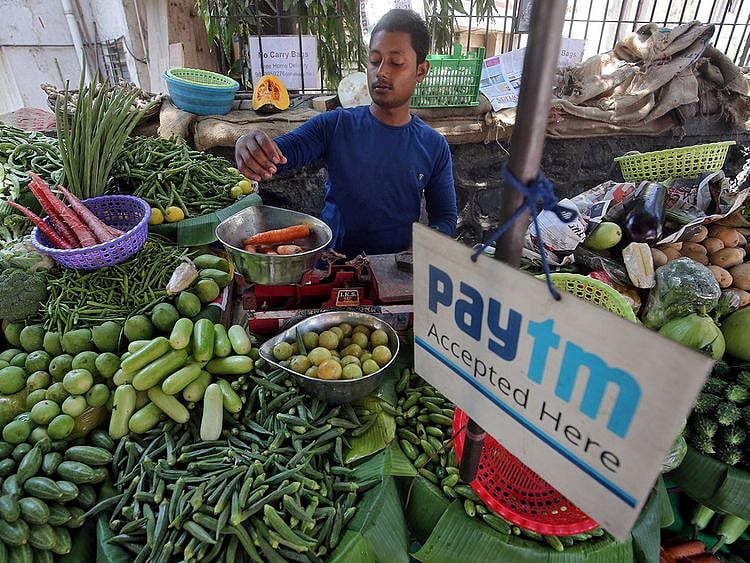Paytm's surprise share buyback plan is drawing skepticism
Move comes as the stock has plunged about 75% since its listing last November

Paytm's plan to buy back shares has left investors surprised and worried about the loss-making Indian fintech firm's growth prospects as it uses funds to prop-up its hammered stock.
The board of One 97 Communications Ltd., the listed-entity that runs Paytm, will decide on the buyback on Tuesday. The move comes as the stock has plunged about 75 per cent since its listing last November to emerge as the world's worst-performing large initial public offering in a decade. The slump also prompted a unit of Japan's SoftBank Group Corp. "- a key backer "- to trim its holding.
While a buyback could help stem the rout in Paytm shares at least temporarily, investors are questioning the attempt to manage the stock price rather than putting the cash to use for business. The company, India's leading digital payments brand, last month posted a wider second-quarter loss.
"There is little merit in bucketing cash this way," Institutional Investor Advisory Services India Ltd., a proxy advisory firm, wrote in a note on Monday. Unless the shares are repurchased at more than 2,150 rupees apiece "- the price at which they were sold in the IPO "- the buyback will favor only Paytm's pre-IPO shareholders and employees, it wrote.
Paytm's shares were up 1.9 per cent as of 11:53am in Mumbai, taking their gains since the buyback announcement to 6 per cent.
"While tabling a proposal for a buyback, the company has ensured that there is surplus liquidity, which means that all cash requirements are adequately budgeted," Paytm said in an emailed statement on Tuesday. "The management is confident of strong operational performance and remains focused on building long-term value for its shareholders."
Buyback size
Indian firms cannot use money raised from an IPO to fund a share buyback, the company had said earlier. Any buyback, if approved by the board, will be done using cash on the company's books, it said.
"It is unclear if the size of the buyback will be sufficiently meaningful to move the needle" for Paytm, IiAS wrote.
Rahul Jain, an analyst at Dolat Capital Market Ltd. in Mumbai, estimates the appropriate size of a buyback at about Rs8 billion ($97 million) to Rs10 billion. Paytm would likely buy the shares on the open market, he wrote in a note earlier.
To be sure, sell-side analysts have turned more positive on Paytm's stock in recent weeks. As many as eight of the 12 analysts tracking the stock recommend a buy or equivalent rating "- the highest number since its trading debut, according to data compiled by Bloomberg.
Paytm wants to tell investors that the current stock price is not reflecting its value and even a small-sized buyback can help the company send them the signal, according to Vikas Gupta, a strategist at OmniScience Capital. "The company's focus is clear, it now wants to attain profitability at a certain point of time and remains confident of it."
Big IPO
Touted as India's largest-ever IPO at the time of its listing, Paytm's offering attracted traditional global stock pickers such as BlackRock Inc. and the Canada Pension Plan Investment Board. Shares were sold at the top of a marketed range as the deal attracted strong demand from individuals and funds, although they never traded above the listing price.
Helped by gush of global liquidity, India's then booming IPO market saw strong investor appetite for other consumer technology companies as well "- including online food delivery firm Zomato Ltd. and beauty products retailer Nykaa "- despite questions over their profitability and valuations.
With shares of these companies coming under pressure following the global meltdown in the technology sector, a number of their early backers have exited or trimmed stakes.
"Stock buyback is a strategy play for Paytm because the share price has seen sharp erosion," said Karthick Jonagadla, the founder of Mumbai-based Quantace Research. "For the buyback to work, the company may need to pay 30 per cent-40 per cent premium over current price. Otherwise, it may not serve the purpose."
Sign up for the Daily Briefing
Get the latest news and updates straight to your inbox
Network Links
GN StoreDownload our app
© Al Nisr Publishing LLC 2026. All rights reserved.